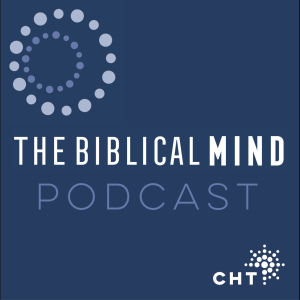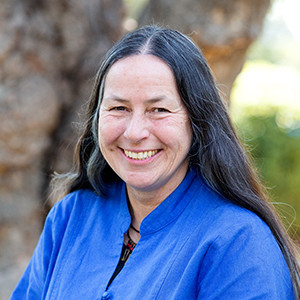The Biblical Mind
The Biblical Mind is dedicated to helping its audience understand how the biblical authors thought, promoting Bible fluency through curious, careful reading of Scripture. It is hosted by Dr. Dru Johnson and published by the Center for Hebraic Thought, a hub for research and resources on the intellectual world of the Bible.
The Biblical Mind is dedicated to helping its audience understand how the biblical authors thought, promoting Bible fluency through curious, careful reading of Scripture. It is hosted by Dr. Dru Johnson and published by the Center for Hebraic Thought, a hub for research and resources on the intellectual world of the Bible.
Episodes

Friday Aug 13, 2021
Biblical Artist Series: Seeing Differently through Art (Steve Prince)
Friday Aug 13, 2021
Friday Aug 13, 2021
Steve Prince knew he wanted to be an artist since he was five years old. Art can be a powerful way to worship, and being a maker of things allows us to reflect God the Creator. For Prince, being a Christian and an artist go hand and hand—he sees his artwork as a calling. In this episode, Dru Johnson talks to Steve about his life as a Christian artist, the influence of his Catholic upbringing in New Orleans, how he communicates through art, and how Scripture and art relate. They discuss a piece of Prince’s art.
Show notes:
0:00 Being a Christian and an artist
6:43 Church background informing art
15:50 Using art to wrestle with Scripture
23:12 “Genesis: In the Beginning”
34:30 Should Christians make monuments of humans?
43:30 The Bible is alive
Show notes by Serena Tuomi.
Credits for the music used in TBM podcast can be found at: hebraicthought.org/credits.

Friday Aug 06, 2021
If Christians Read Scripture Like Jews Do, Continued (Ari Lamm)
Friday Aug 06, 2021
Friday Aug 06, 2021
Rabbi Dr. Ari Lamm returns to continue discussing the fascinating and fruitful ways that Jews approach studying Scripture.
Dr. Lamm's Orthodox Jewish upbringing taught him to embrace the view of the Hebrew Bible as layered, complex, and challenging—for, the very idea of God suggests that He has complex and layered ideas to communicate with His creation. Dr. Lamm encourages Christians to be similarly comfortable with questioning biblical texts on a deeper level.
Don’t forget to check out Dr. Lamm’s podcast Good Faith Effort.
Show notes:
0:00 Determining a biblical perspective on a topic the Bible doesn't directly address
9:00 How the Bible is meant to be studied (if we're taking it seriously)
22:50 Explaining the harmony in heaven and the discord on earth
32:31 When Jesus reaffirmed the Jewish tradition of oral Torah
37:58 Christian political philosophers who relied on Jewish wisdom
Show notes by Celina Durgin
Credits for the music used in TBM podcast can be found at: hebraicthought.org/credits.

Friday Jul 30, 2021
Ancient Jewish Pilgrims and Sacrificial BBQ (Jeffrey Garcia)
Friday Jul 30, 2021
Friday Jul 30, 2021
When you hear the word "pilgrim," your first thought might be of the pilgrims who arrived in Plymouth Harbor in 1620, or of English medieval pilgrims. You might be less familiar with the ancient Jewish pilgrims who journeyed to the temple in Jerusalem. CHT fellow Dr. Jeffrey P. Garcia joins Dr. Dru Johnson to discuss this overlooked practice that fills in some historical context of the first-century biblical world.
Show notes:
0:00 Overlooked Jewish pilgrimage, and sacrificial barbeque?
8:05 The historical practice and purpose of Jewish pilgrimage in the first century
14:07 The dangers of the pilgrimages
16:40 Galilean and Judean pilgrimage to the temple in Jerusalem
19:39 The friends who pilgrims made along the way
21:50 The Essenes' disagreements related to pilgrimage
27:43 Test case: Does John the Baptist create a pilgrimage?
Show notes by Celina Durgin.
Credits for the music used in TBM podcast can be found at: hebraicthought.org/credits.

Friday Jul 16, 2021
Yes, You Can Learn Biblical Hebrew—and Why You Should! (Aleph with Beth)
Friday Jul 16, 2021
Friday Jul 16, 2021
Due to a technical issue, Dru's audio is of lower quality than usual.
There are many factors that hinder people from learning biblical Hebrew––cost, lack of resources, and the belief that Hebrew is only for the “spiritually elite.” But Beth and Andrew Case believe learning Hebrew is for everyone and want to make learning the language the new normal in Christian discipleship. The Cases have tools to make the biblical language available for free to everyone in the world. In this conversation, the Cases chat with Dru Johnson all about the Hebrew language, their special pedagogy, and their Youtube Channel Aleph with Beth where they teach the language of the Hebrew Bible, free to everyone.
Show notes:
0:00 Is learning Hebrew for everyone?
6:50 Learning Hebrew is doable
14:50 Hebrew can help people understand Scripture
18:40 The Case’s history with Hebrew
24:04 Why they speak the name of God
28:18 Why the Cases only speak Hebrew in videos
36:30 How they assess if their methods are working
40:00 What the Cases have learned
Show notes by Serena Tuomi.

Friday Jul 09, 2021
Christians Shouldn't Be Stuck in the Present (David Moore)
Friday Jul 09, 2021
Friday Jul 09, 2021
David Moore believes the cultural moment in the United States has never before displayed such a dangerous combination of ignorance and arrogance as it does now. Most people have limited knowledge about few things, but the glut of information makes them feel like they are an expert on many issues. Most people get their news primarily from social media and their favorite news channel. We live in echo chambers partly because we cannot handle our beliefs being challenged. It is no wonder there is so much division.
David Moore and Dru Johnson chat about how history frees and forms Christians. Moore’s new book Stuck in the Present exists to teach Christians to be lifelong learners of history. Moore promotes the wisdom of understanding the bigger picture of history and befriending conversation starters who challenge you and your ideas. These habits also better prepare people to study Scripture productively.
Show notes:
0:00 Stuck in the Present
4:37 Stuck in ideology
11:23 Progress of doctrine in America
17:09 How we think about history today
21:40 Where is America in history education today?
27:35 The inductive Bible study method
33:55 A fresh Bible study method
Check out Stuck in the Present, by David Moore.
Show notes by Serena Tuomi.
Credits for the music used in TBM podcast can be found at: hebraicthought.org/credits.

Friday Jul 02, 2021
Can You Understand Scripture without Background Knowledge?
Friday Jul 02, 2021
Friday Jul 02, 2021
The moment you dip your toe into the world of serious biblical interpretation, you might feel overwhelmed by all the literary techniques, historical-cultural context, linguistic nuances, and extra-Biblical references that could affect how you understand Scripture. The average person might begin to doubt whether they can ever just open their Bible and start reading.
CHT researcher Amy Gabriel talks with Dru about this concern. They discuss the role of all this "background knowledge" in helping us understand Scripture, and how we can approach the text even without knowing Hebrew or Greco-Roman philosophy.
Plus, learn why we should all be the Proverbs 31 woman.
Show notes:
0:00 The debate: How much do you have to know about the biblical world to understand Scripture?
4:18 Does everyone have to be a scholar of Hebrew and the ancient Near East to grasp Hebraic thought?
18:20 The uniqueness of the Bible in its own time
19:42 The primary sourcebook of the New Testament authors
33:45 Should Scripture be easy to interpret? Is there one right interpretation?
43:08 "Real talk" about pastors and sermons
Show notes by Celina Durgin.
Credits for the music used in TBM podcast may be found here: hebraicthought.org/credits

Friday Jun 25, 2021
The 'New Christian Zionism' Isn't Dispensationalist (Gerry McDermott)
Friday Jun 25, 2021
Friday Jun 25, 2021
What is the biblical relationship between Christians and the Jewish community? Dr. Gerry McDermott wades through the tough topics of supersessionism, dispensationalism, and Zionism. Throughout history, beliefs about God's attitude toward the Jewish community have shaped Christians' treatment of Jewish people. Hence, Christian positions on supersessionism and dispensationalism are not merely academic disputes; they can bear on Jewish people's lives and well-being. They also bear on our understanding of biblical covenant, continuity between the Old and New Testaments, and salvation.
Dr. McDermott discusses what he believes to be the biblical view, which he calls the "new Christian Zionism." He explains why he retained the contentious term "Zionism," and why this view is distinctive.
Show notes:
0:00 Detangling the new Christian Zionism, dispensationalism, and supersessionism
7:55 Anglican and interdenominational support for Christian zionism
11:02 Why Gerry retains the term "Zionism"
17:13 Wait, are you saying that Jews are Christians, too?
25:24 Hopes for the relationship between the American church and the Jewish community and the state of Israel
Check out Dr. McDermott's related book, The New Christian Zionism: Fresh Perspectives on Israel and the Land.
Show notes by Celina Durgin
Credits for the music used in TBM podcast can be found at: hebraicthought.org/credits.
![Is God Perfect? Does That Matter? [Revisited] (Peter Leithart)](https://pbcdn1.podbean.com/imglogo/ep-logo/pbblog5306974/Screen_Shot_2020-02-25_at_11_34_29_AM_300x300.png)
Friday Jun 18, 2021
Is God Perfect? Does That Matter? [Revisited] (Peter Leithart)
Friday Jun 18, 2021
Friday Jun 18, 2021
Note: This episode was originally published February 25, 2020. ICYMI, please enjoy this lecture hosted by the Center for Hebraic Thought on February 15, 2020.
The Christian tradition describes God as “perfect”—but how the Bible describes this perfection might surprise us. When we think of God, we often start by asking, “What is God?” This is the approach of the Westminster Catechism as well as many philosophers. This seemingly common-sense approach, however, is strange at a second glance—after all, we wouldn’t typically ask, “What is your spouse?” or “What is Steve?” In this lecture, Dr. Peter Leithart argues for a different approach: asking, “Who is God?”
To understand God’s nature (including His perfection), we must consider how Scripture reasons. Often, the biblical authors appeal to poetry, imagery, story, and history to define God. Dr. Leithart argues that these literary forms—far from being irrational or anti-philosophical—are rigorously intellectual and potent forms of knowing a God who is personal, transcendent, and yes, perfect.
This episode is a recording of the evening lecture for our February 14-15 workshop with the Rev. Dr. Peter Leithart of the Theopolis Institute.
Show notes:
0:00 Introduction by Dr. Dru Johnson
2:08 “What is God?”
13:59 The intellectual rigor of the Bible
22:04 How the Bible uses poetry and imagery to describe God’s nature
28:13 Anthropomorphic or theomorphic?
33:00 God defined by story and history
41:52 Conclusion

Friday Jun 11, 2021
Lament, Moral Injury, and the Dark Parts of Scripture (Dr. Jill Firth)
Friday Jun 11, 2021
Friday Jun 11, 2021
"Moral injury" has been associated with groups like wounded soldiers and sexually abused women, but it can also affect those who have simply learned about something incredibly painful or violent, whether it be in the media or in Scripture. Dr. Jill Firth has a PhD in the psalms of lament and a particular interest in suffering. In this episode, Dru Johnson and Dr. Firth discuss the issue of moral injury and its relation to the Bible.
Throughout the conversation, Dr. Firth references the prophet Jeremiah and the lament psalms to address this heavy topic. We shouldn't shy way from studying the dark and violent parts of Scripture. These can help foster our imagination for the horrific parts of life, so that we can better understand others' experiences of suffering and our own.
People often seek easy answers or comforting verses in the Bible when they are struggling, for similar reasons that they turn to food, Netflix, or friends. But what we really need is to trust God with our pain and give Him a chance to be our Living Water—even if that means we must experience the pain and not quickly numb or resolve it.
Want to learn more? You can check out Dr. Firth's "Journey Through the Psalms" project.
Show notes:
0:00 The field of moral injury
6:55 Why are people uncomfortable with lament in Scripture?
13:34 Cultivating your imagination for suffering
17:05 Responding to real stories of real people
21:00 The length of the moral injury metaphor
25:44 Needing to know God is with us
30:32 Missing the element of lament in worship
Show notes by Serena Tuomi.
Credits for the music used in TBM podcast can be found at: hebraicthought.org/credits.

Friday Jun 04, 2021
Until All the Psalms Are Sung Again (Poor Bishop Hooper)
Friday Jun 04, 2021
Friday Jun 04, 2021
We all need God’s word, and we need it desperately––this is why Jesse and Leah Roberts embarked on EveryPsalm.
Jesse and Leah are parents, pastors, and musicians living in Kansas City, MO. They began their EveryPsalm project on January 1, 2020, after years of talking about the idea. They explain, “EveryPsalm is a three-year long musical journey consisting of simple, meditative songs based on the psalms. Starting with Psalm 1 and ending at Psalm 150.” Each song is based on a psalm, and almost all of their lyrics are taken word-for-word from the Bible. Their goal with this project is to help their listeners interact with Scripture in new ways and to make God’s Word applicable to any circumstances people might face.
In this episode, Jesse and Leah talk with Dru Johnson about their project thus far (they're up to Psalm 75) and their goals for the rest of the songs to come. They discuss the songwriting process and how putting Scripture to music aids memorization and deeper engagement.
You can check out their Youtube channel to listen to every song of the EveryPsalm project along with their other free music. You can also check out their website for more information and to subscribe to their weekly song release.
Show notes:
0:00 How Jesse and Leah use the Psalms to write songs
6:39 How they pick their tone for each piece
10:02 What they’ve learned about the Psalms as they’ve worked through them
11:40 The role of lament
16:07 How they safely interpret each Psalm
22:10 Putting words to music
26:50 How they avoid “telling others how to feel"
Show notes by Serena Tuomi.
The music featured in this episode was used with permission from Poor Bishop Hooper. The audio clips are from "Psalm 7," "Psalm 13," "Psalm 16," and "Psalm 40."






